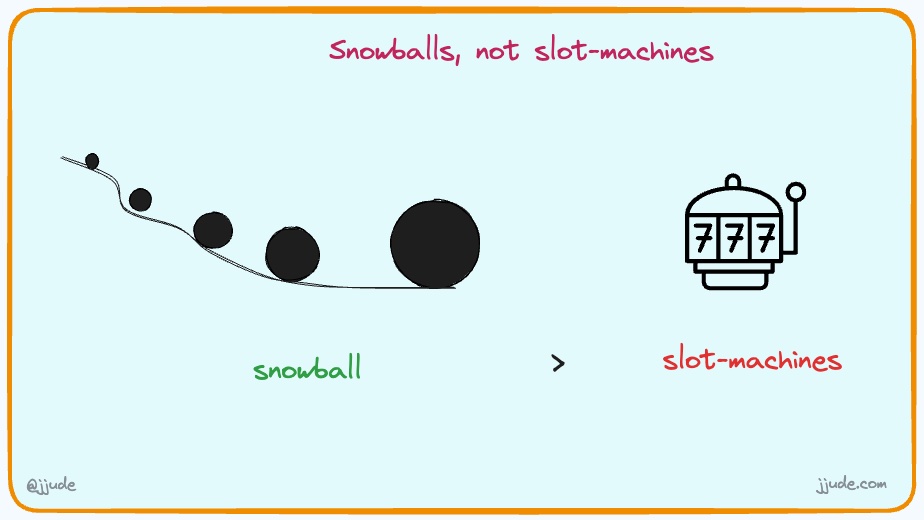You can write to express or impress.
Writing to express yourself means journaling and taking notes. Writing this way sharpens your mind, enhances your communication skills, and helps you grow. In contrast, when you write for others, like authors, content writers, or screenwriters do, you want to educate, entertain, or empower them.
You can keep your writing private or share it with the world, like I did here. There are countless platforms where you can share your thoughts, like Medium, LinkedIn, or Twitter. Even if you’re not a professional writer, I’d encourage you to write for yourself. It’s a great way to improve your thinking and communication.
“Man becomes what he thinks.” The clearer your thoughts become, the better you’ll be at everything – from seeing the world to interacting. Writing is the foundation of success. You should write and express yourself as a way to think. It’s up to you if you publish your work or not.
There’s an endless well of ideas when you write to express yourself. But when you’re writing for others, especially to impress them, writer’s block and anxiety can creep in. Because I’m writing for me, I don’t worry about what people will think. Sure, I read comments and engage with readers, but my main goal is to improve myself.
I’ve found this approach to be incredibly helpful in my own life. Go ahead, pick up that pen or open that laptop and start writing!
